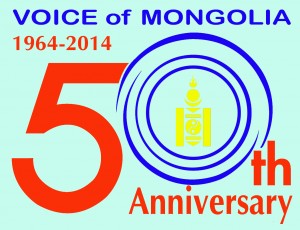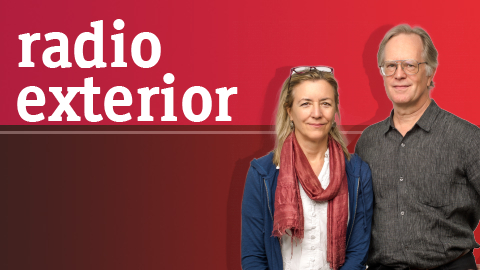
Extracts from my Broadcast Matters column, Radio User, May 2014
Photo of a vintage radio at the Grand Canyon.
I appreciate the
benefits of high tech life, such as my tiny Sony smartphone and its ability to
read newspapers, emails, blogs and books from the palm of my hands. I can watch
videos, tv, listen to radio and view the world through people’s instant photos
(and add my own snapshots too) through Instagram. But I always also appreciate
the charms and variety that my 30 year old Sony shortwave radio can deliver to
me - and I can’t imagine that ever changing. Even a simple scan of the bands
can still bring you a cacophony of international sounds and opinion. I was
pondering over this thought in early spring as the B-13 schedules concluded.
Two half hour
sessions, one in mid evening and another soon after dawn again illustrated to
me the amazing array of information and entertainment that us DXers and
shortwave listeners are privileged to hear. It’s a shame that so much of the
world misses out on the experience of hearing voices and instruments from
faraway lands. Even at shortwave’s peak in the 1970s and 1980s Jo and Joe
Public were blissfully unaware of the delights on offer if they would only turn
off the telly and its diet of dull soap operas and unfunny sitcoms.
Well, their loss
is our gain. I started by catching up with the news from the Voice of Vietnam
on 9730kHz. I am omitting the times I heard these stations as they all changed
schedules on 30 March. It’s just to give a flavour of a typical session of
shortwave listening. The Hanoi broadcaster seems unable to let a day pass
without mention of the Vietnamese People’s Army and this time was no exception.
Mention of a chairman of a political party hosting a banquet painted a vivid
picture for me, and I was pleased to hear that for the first time Vietnam had
attended the UN Human Rights Council in Geneva.
Deutsche Welle on 9800kHz was
carrying updates and vox pops of the worrying situation in South Sudan where
displaced people are hungry and in need of supplements and stability. An antidote
to this depressing news came in the form of folk music from Radio Tirana. Sometimes I find it a little twee sounding but this time
it was the style of folk that I like the most, haunting female vocals and
melodies (akin to Le Mystère des Voix Bulgares - "The Mystery of Bulgarian
Voices", that came to UK (and global) prominence on the crest of the
World Music wave back in the late 1980s). The music put me in a relaxed state
of mind and enabled me to enjoy the profile programme which featured two
painters. One of these artists was renowned for painting more pictures of
Albanian medieval hero Skanderbeg. It
seems to me that Skanderbeg is to Radio Tirana what the Vietnamese People’s
Army is the Voice of Vietnam- ubiquitous.
Next on my dial
was another station specialising in hero-worship- the Voice of Korea on
7570kHz. They were extolling the visit of a Russian delegation who had come to
Pyongyang to celebrate the 65th anniversary of one organisation or
another.
Radio Cairo
offered some variety on 9900kHz although their eternal failure to modulate
their signal correctly meant it was all but impossible to hear what the female
presenter was saying, even although it was in English. My patience was rewarded
however with some rather good music which sounded like a tango, Egyptian-style.
The quirks of shortwave stations can throw up these unlikely aural combinations
which are always rather special to my ears.
All of the stations so far had given a fair to good signal strength (that
is to say a 3 or 4) and the next stop on my audio voyage came in with an
excellent signal strength (a 5).
The General Overseas Service of All India
Radio on 11670kHz gave a gripping talk on the celebration of language- with the
speaker stating he felt it to be humankind’s greatest achievement. The very
fact that I was hearing this on the radio seemed testament to the fact. It was
a positive note to turn in for the night on.
Awaking early on
a Saturday morning, with an hour to myself before heading off on a canal walk,
I spent a happy half hour in the company of several continents, courtesy of my
bedside radio. I started off with good old Radio Romania International, always
a strong signal and often with a programme that is worth listening all the way
through to the end. In today’s case the feature on Romanian-German relations
wasn’t enough to keep me tuned to the full broadcast, although I did learn that
Germany was Romania’s largest trading partner and that relations between the
two nations were “as good as possible.”
From 21600kHz I
tuned down to 15120KHz to join the Voice of Nigeria’s breakfast time show. It
was concentrating on the booming local economy and banking sector too much to
keep me interested. So skipping onto 15595kHz I heard the heavenly sounds of a
choir, live from a church it seemed. A voice proclaiming in the long dead Latin
language followed and it didn’t take a DXpert to identify this as a mass from
Vatican Radio. I kept popping back to this in between other broadcasts as it
was rather addictive in some ways.
But next I leapt several continents to find
myself with the Saturday evening broadcast from Radio New Zealand
International. It’s rather incongruous to be sharing someone’s Saturday night
when you haven’t yet risen for Saturday breakfast, but it’s another example of what
makes international broadcasting so appealing to me. The music request show
included a 66th wedding anniversary request for a price by Handel
and an 18th wedding anniversary request for some Van Morrison.
I then turned to
Radio Australia on 15415kHz who were reaching half time in an Aussie Rules
match where the defending champions Hawthorn Hawks were romping their way to a
48 point victory over Brisbane Lions. After a burst of ABC news I looked in on
Radio Cuba Havana’s 6060kHz frequency. Their round up of South American news
included an item about Bolivia and an election poll from Brazil. Finally, I was
entranced by some enticing North African music interspersed with a news item in
French, which I guess was RFI, on 17860kHz.
So there we have
it, in my eyes a simple short session or two with a basic radio can give you so
much enjoyment and entertainment as well as an eye opening glimpse of the world
around us.




.jpg)























